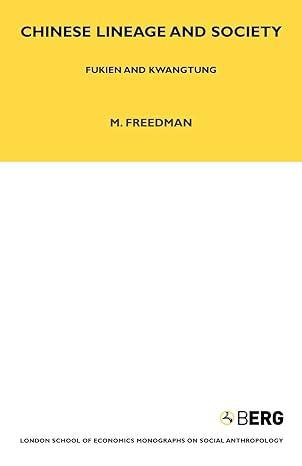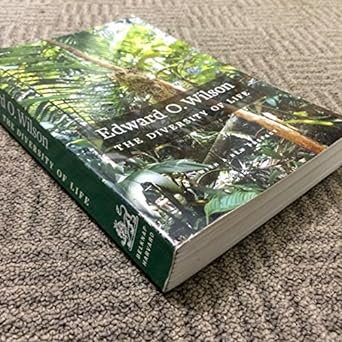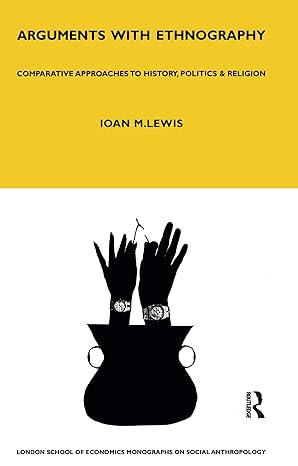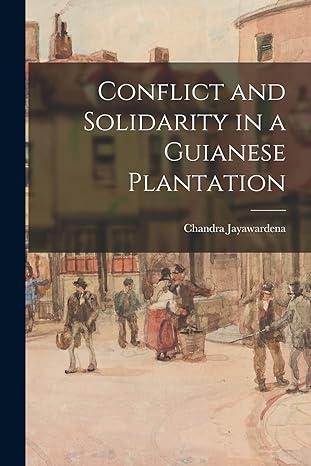Go back

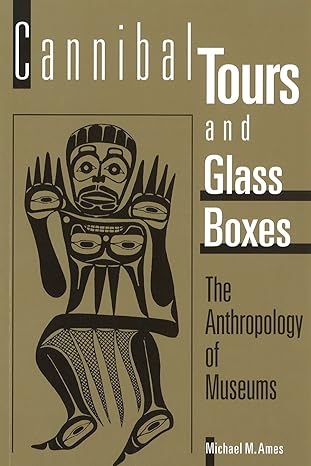
Cannibal Tours And Glass Boxes The Anthropology Of Museums(2nd Edition)
Authors:
Michael M. Ames

Cover Type:Hardcover
Condition:Used
In Stock
Shipment time
Expected shipping within 2 DaysPopular items with books
Access to 30 Million+ solutions
Free ✝
Ask 50 Questions from expert
AI-Powered Answers
✝ 7 days-trial
Total Price:
$0
List Price: $37.95
Savings: $37.95(100%)
Solution Manual Includes
Access to 30 Million+ solutions
Ask 50 Questions from expert
AI-Powered Answers
24/7 Tutor Help
Detailed solutions for Cannibal Tours And Glass Boxes The Anthropology Of Museums
Price:
$9.99
/month
Book details
ISBN: 0774804831, 978-0774804837
Book publisher: UBC Press
Get your hands on the best-selling book Cannibal Tours And Glass Boxes The Anthropology Of Museums 2nd Edition for free. Feed your curiosity and let your imagination soar with the best stories coming out to you without hefty price tags. Browse SolutionInn to discover a treasure trove of fiction and non-fiction books where every page leads the reader to an undiscovered world. Start your literary adventure right away and also enjoy free shipping of these complimentary books to your door.
Book Summary: Cannibal Tours and Glass Boxes poses a number of probing questions about the role and responsibility of museums and anthropology in the contemporary world. In it, Michael Ames, an internationally renowned museum director, challenges popular concepts and criticisms of museums and presents an alternate perspective which reflects his experiences from many years of museum work.Based on the author’s previous book, Museums, the Public and Anthropology, the new edition includes seven new essays which argue, as in the previous volume, that museums and anthropologists must contextualize and critique themselves – they must analyse and critique the social, political and economic systems within which they work. In the new essays, Ames looks at the role of consumerism and the market economy in the production of such phenomena as worlds’ fairs and McDonald’s hamburger chains, referring to them as “museums of everyday life” and indicating the way in which they, like museums, transform ideology into commonsense, thus reinforcing and perpetuating hegemonic control over how people think about and represent themselves. He also discusses the moral/political ramifications of conflicting attitudes towards Aboriginal art (is it art or artifact?); censorship (is it liberating or repressive?); and museum exhibits (are they informative or disinformative?).The earlier essays outline the development of museums in the Western world, the problems faced by anthropologists in attempting to deal with the often conflicting demands of professional as opposed to public interests, the tendency to both fabricate and stereotype, and the need to establish a reciprocal rather than exploitative relationship between museums/anthropologists and Aboriginal people.Written during the course of the last decade, these essays offer an accessible, often anecdotal, journey through one professional anthropologist’s concerns about, and hopes for, his discipline and its fu
Customers also bought these books
Frequently Bought Together
Top Reviews for Books
Edmundo Zevallos
( 4 )
"Delivery was considerably fast, and the book I received was in a good condition."


